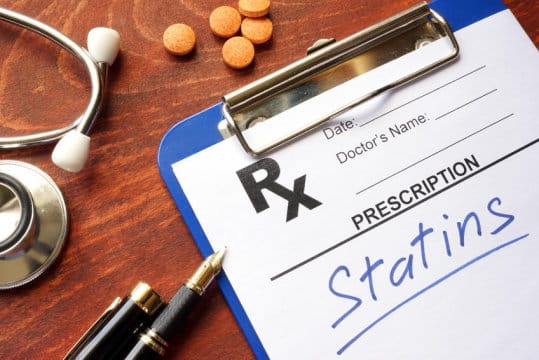ALS is a fatal and irreversible nervous system disorder that causes progressive muscle strength loss. It is also known as Lou Gehrig’s disease and causes nerve cells within the spinal cord and brain which control voluntary muscle to die. This may start with weakness in one arm/leg and speech changes before leading to muscle twitching to eventually prevent movement, speach, eating, and breathing.
According to a new study statins may be one of the driving factors behind sporadic cases of amyotrophic lateral sclerosis which accounts for 9 out of 10 cases of ALS. As published in the Drug Safety journal researchers examined the reporting odds ratio of statins in relation to amyotrophic lateral sclerosis and ALS like symptoms, of which an ROR of 6 or more typically suggests probably cause.
The RORs for amyotrophic lateral sclerosis were elevated for all of the statins investigated, but lipophilic statins such as Lovastatin/Altoprev were found to have had an alarmingly high ROR of 107; Simvastatin/Zocor was at 23; Atorvastatin/Lipitor was at 17; and Rosuvastatin/Crestor was at 9.09. Based on their findings the researchers concluded there is a connection and it warrants further exploration.
Statins have also been linked to a higher risk of heart disease and memory loss. Common side effects to taking these drugs include but are not limited to fatigue, cognitive problems, muscle symptoms, as well as some note aggression, irritability, and numbness/tingling in extremities. While statins are intended to lower the risk of ischemic stroke they can increase the risk of suffering hemorrhagic strokes.
To add to list of possible negatives statins have also been shown to double the risk of developing diabetes, and the risk is even higher among post menopausal women. A large study involving more than 150,000 women showed the risk for postmenopausal women of diabetes increases by 71% when they are taking statins.
Some people may be able to avoid taking statins by making healthy lifestyle changes that will improve health and bring cholesterol levels to healthier levels. While making these changes is not as easy as reaching for a pill, improving your diet and participating in regular exercise doesn’t come with the negative side effects these drugs carry such as ALS, in fact they will have the opposite effect and come with many positive benefits.
It is estimated that close to 1 in 4 Americans over the age of 45 is taking statins, it is important that people are aware of the potential dangers and that there are alternatives for lowering cholesterol and protecting the heart. The first step is adding more healthy foods to the diet known to fight cholesterol such as fiber, omega-3 fatty acids, and garlic. Secondly avoid being sedentary, get up and get moving, try starting with a few casual strolls around the block after dinner and gradually increase intensity and duration. Talk to your doctor who should be happy to help you work out a healthy plan to improve your health with the goal of removing the need for pharmaceuticals.




